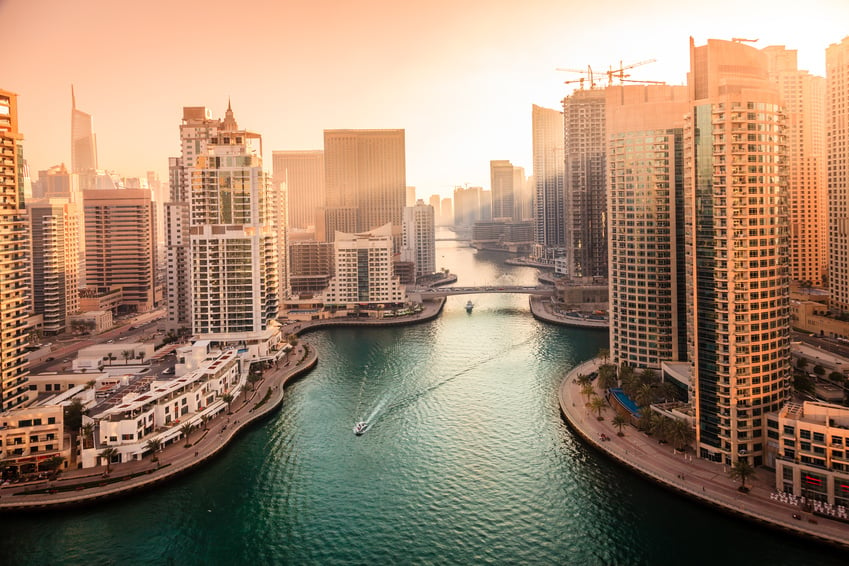The long awaited Federal Law No. 15 of 2020 on Consumer Protection (“Consumer Protection Law”) has been issued on 10 November 2020 and is a major update which aims to revamp and repeal the old UAE consumer protection laws, being Federal Law No. 24 of 2006 (“Old Law”). Due to the rapid rise of e-commerce globally, including in the UAE, the Consumer Protection Law now acknowledges and captures e-commerce service providers. The Consumer Protection Law has also now imposed a restriction on using personal data of customers for marketing and promotion purposes.
As COVID-19 rapidly spreads to every corner of the globe and is officially declared a pandemic, governments across the world are adopting emergency measures to fight against this extraordinary situation. Ultimately, all these measures are aimed at protecting the health and wellbeing of citizens. However, on the healthcare and life sciences front in particular, such measures range from intervention powers to guarantee adequate supplies of treatment and medical equipment, to the relaxation of deadlines and regulatory requirements to simplify administrative procedures wherever possible, so that competent authorities, manufacturers and other actors can focus on urgent priorities related to the COVID-19 crisis.
The unheralded Botes’ Law on Annual Leave Interpretation holds that if there are two people arguing about the interpretation of annual leave, there will be at least three interpretations of the law on that issue. Johan Botes, Partner and Head of Employment & Compensation at Baker McKenzie in Johannesburg, explains his theory, referring to recent South African judgments that had conflicting views on the matter.
The United States (US) President Elect Joe Biden and his new administration are expected to take a multilateral approach to foreign policy, easing tensions and increasing engagement with allies. Trade issues are also expected to be a top priority for the Biden administration and under Biden, US engagement with African…
Earlier last week, Sheikh Khalifa bin Zayed Al Nahyan, President of the United Arab Emirates (UAE), issued a decree introducing a number of fundamental changes to the UAE Commercial Companies Law (CCL Amendment) and to the UAE’s approach towards foreign direct investment (FDI) in general. The CCL Amendment adopted a new general rule of, in principle, allowing foreign investors to fully own certain types of companies in the mainland of the UAE.
The current UAE Commercial Companies Law No. 2 of 2015 (as amended) (CCL) was issued in 2015 and was a long awaited development. The CCL, however, maintained many of the foreign investment restrictions of its predecessor.
In 2018, the Decree Law No. 19 of 2018 regulating Foreign Direct Investment (FDI Law) was issued with an aim to relax the investment restrictions and facilitate the establishment of companies with up to 100% foreign capital in certain strategic sectors. This was a welcome change and a milestone in the development of the UAE foreign investment rules.
Access Now! New editions of EMEA Tax Guides for mergers, acquisitions and expansions to new markets Whether you…
On 4 November 2020, the Ministry of Human Resources and Social Development (MHRSD) announced certain labor reforms for foreign national employees working in the private sector that will come into effect on 14 March 2021. Since the initial announcement, the MHRSD (in coordination with the National Transformation Program and National Information Center) announced the conditions in order to benefit from each of the initiatives.
As COVID-19 rapidly spreads to every corner of the globe and is officially declared a pandemic, governments across the world are adopting emergency measures to fight against this extraordinary situation. Ultimately, all these measures are aimed at protecting the health and wellbeing of citizens. However, on the healthcare and life sciences front in particular, such measures range from intervention powers to guarantee adequate supplies of treatment and medical equipment, to the relaxation of deadlines and regulatory requirements to simplify administrative procedures wherever possible, so that competent authorities, manufacturers and other actors can focus on urgent priorities related to the COVID-19 crisis.
In brief Overview Zareenah Rasool, Candidate Attorney, Rui Lopes, Associate, and Darryl Bernstein, Partner and Head of the…
In addition to the comprehensive economic support and stimulus program launched by the UAE Central Bank to curb the financial impact of the COVID-19 pandemic, the UAE has introduced radical amendments to the UAE Bankruptcy Law, offering distressed debtors with some level of leniency during these times of economic uncertainty and market disruption caused by circumstances outside of their control.
Key changes include: adding new provisions to the law related to “emergencies” such as pandemics and natural and environmental disasters; new debtor’s rights to delay filing for bankruptcy and to resort to out-of-court settlement agreement with creditors; and mechanisms to obtain new financing under certain rules and conditions.



